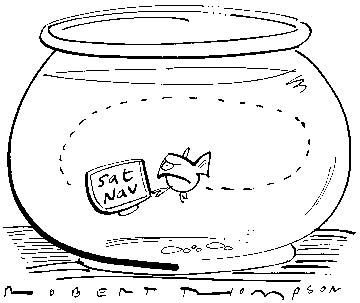A rare but threatened species, in dire need of a campaign to save it from extinction, could be heard on Saturday night. Stages of Independence, showcasing the work of ten African playwrights, is likely to be one of the last-ever original World Service productions when the threatened cut to its budget goes through. Twenty-six BBC reporters and cameramen were rushed off to the Chilean desert to film what was undeniably a fantastically dramatic story. But were that many really needed? Meanwhile, a staple output of the BBC, and part of its Reithian mission — free access (at the touch of a button, and no longer at the cost of a licence) into the mind’s interior, to the interplay of voices, words and the imagination — is under threat. Once drama’s gone, we’ll never get it back.
When Marion Nancarrow took over as head of World Service drama in 2001 she was mistress of two-and-a-half hours of drama production each week. Now she has just 12 hours a year, and even that is in imminent danger of being abolished. In her office at Bush House hangs a picture that was sent to her by a group of builders in an African village. It shows them sitting around a wind-up radio, listening to the latest edition of Westway, the World Service soap which ran for eight years, was heard by millions in places as far afield as Timbuktu and Qaqortoq, but was cut off in its prime in October 2005 in an earlier budgetary crisis. Twice a week the builders listened together in their lunch break. What did they love so much about a series set in a doctors’ practice in west London? The telling of stories, listening in to other people’s lives. It’s something that all cultures share, no matter how sophisticated they become, as Neil MacGregor has revealed so compellingly in The History of the World in 100 Objects.
Why, though, do we need special World Service productions when Radios 3 and 4 create so much drama each week? Because the World Service tackles different issues, and in a very particular way, says Archie Graham of Tiata Fahodzi (the British African Theatre Company), who is setting up a website campaign to save World Service drama (www.savethebbcworlddrama.com). Last year, for instance, seven writers from the Middle East were brought together in Qatar for a workshop, out of which emerged an hour-long drama about life in the region. We might think that the issues raised by Al Amwaj (The Waves) would only be relevant in Palestine, Israel, Doha and Saudi Arabia. But actually all the characters were in different ways struggling with questions that bother us all — how to be happy, to make the best of things in circumstances beyond your control.
Nancarrow was drawn to radio drama because ‘you don’t need massive budgets and long production processes’. Writers for radio, she says, ‘can hear their work really quickly. And it’s life and breath to them, to hear their words, their characters come to life.’ A 60-minute play takes just two days to record. It’s an egalitarian form of cultural activity, cheap to make and easy to access. World Service drama is special because it often brings together writers from very different life situations and sets them a challenge to create something together that will then resonate with listeners around the globe.
Stages of Independence, produced by Nancarrow with Femi Elufowoju of Tiata Fahodzi, took us from London (knives, gangs and a sparky Jamaican girl in a slice of life from a troubled housing estate) to Cameroon, via Burkina Faso, Mali, Madagascar and Nigeria. The plays, from which we heard short scenes, were sometimes political, sometimes domestic but always resonating with a particular African voice. Juliet has just arrived home from university in Oyônô-Mbia’s comedy from Cameroon, and hopes to carry on studying, but her family has other plans — a ‘real white man’ in a Terylene suit, who’s offered to marry her. ‘Am I for sale?’ she asks. ‘Why can’t you ask my opinion about my own marriage?’ The conversation is specific, and yet the clash of generations would resonate with any parent.
At the other extreme, Wole Soyinka brings together a group of ageing African heads of state at a summit meeting who set about taunting each other. Who’s the most powerful? ‘I killed my first lion at seven!’ We’ve seen and heard them, or their kind, brandishing their egos on the TV news. We laugh and scorn their pretensions, yet also squirm as we recognise our own secret urges — for authority, for influence, for someone to take notice.
BBC World Service drama is, as Archie Graham claims, ‘a cost-effective, soft outreach service’. It’s a cheap and easy way to catch hold of hearts and minds. As listeners we should be revolting.






Comments